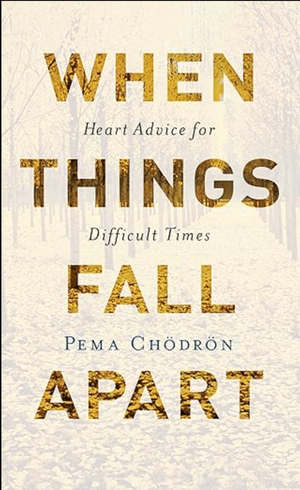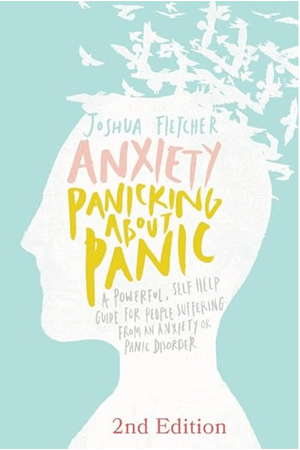
Panic Attacks
Panic attacks might happen suddenly or unexpectedly. They feel like a moment in time when everything around you disappears, except the feeling of fear. It might be the fear of your heart racing, the tightness in your chest, or the fear-based thoughts that race through your mind.
What is a Panic Attack?
By theory, a panic attack can be explained as a sudden feeling of terror that can cause an intense physical reaction when no apparent danger is present. This is a rather severe episode that can happen at any time throughout the day and can last up to 10 minutes. Panic attacks can be characterised by nausea, dizziness, a rapid heart rate, chest tightness, shortness of breath, a feeling of being detached from reality, or even the feeling of dying.
However, these listed characteristics are just facets of what experiencing a panic attack can be. The actual experience can be portrayed as a never-ending nightmare. In an article by Tessa Miller, nine people describe what a panic attack can feel like, one person says that the best way to describe a panic attack is “impending doom.” Another individual adds that the scariest part of it is that “in the middle of it, I don’t realise it is anxiety - I am confused and panicked but also unable to stop it or calm it down or comfort my body that I am not in imminent danger.”
The First Time You Experience a Panic Attack
It happens without warning. Your head starts spinning, and you need to grip onto something, you are caught off guard. Your mind is racing with different thoughts one of them might even be that this is the "end." Do you reach out to someone, or do you wait for it to pass? Will you survive? You might even run to the ER. By the time you are in the care of a professional, your symptoms have calmed down, and everything is back to normal. You are informed you have experienced a "panic attack." Physically, nothing is wrong with you, but there are no promises this won't happen again.
And what if it happens again?
When panic attacks occur, we might experience extreme levels of panic that feel like nothing we have gone through before. The idea of it occurring again is like an unwelcome guest in the back of our mind, obsessively replaying the thought that it might occur at any moment and we won't be able to do anything about it. Given this, for some, the stress of its potential recurrence amplifies, reaching extremes that prompt a drastic reshaping of their life. For example, some people begin to avoid the very triggers that once unleashed the panic. It starts with staying away from the initial trigger where it first struck, avoiding crowded and confined spaces, public transport, driving, or any scenario where there is a perceived lack of escape. It might feel like a constant involuntary game of fearing our own thoughts for fear of causing an attack. It's like living in a cycle of cutting away one's freedom little by little to avoid potential triggers.
Difference Between Anxiety and Panic Attacks
Let’s bridge the understanding of panic attacks by breaking down the differences between anxiety and panic attacks - two terms often mistakenly used. It is correct that anxiety and panic attacks might share the same sensations, however, at their core, they are usually set off differently in terms of intensity and length of occurrence.
Anxiety attacks are usually caused in response to a situation where we might feel threatened and will experience a considerable amount of stress over a prolonged time, which can vary from weeks to months. In comparison, panic attacks can come out of the blue, sometimes without a certain trigger or warning. Not only that, but the intensity of a panic attack, such as the physical and psychological experience, can feel much more heightened compared to an anxiety attack.
Panic Attack Triggers
A panic attack is triggered when the body perceives immediate danger. The brain then orders the nervous system to activate the 'fight-or-flight' response, however, there is no apparent danger at the present moment. Some factors that can trigger the 'fight-or-flight' response include:
Chronic (ongoing) stress: Work, school, relationships with family and friends, health issues, and more could be highly stress-inducing.
Trauma-related experiences: If you suffered from a traumatic experience in the past, there are high chances that anything reminding you of it can trigger panic attacks.
What to do if you are having a panic attack?
Depending on your location, it would be best to stay where you are at that moment and try to avoid making rapid movements. Notice your breathing, it might seem impossible to control it, but it is essential that you try to take slow and deep breaths. If it’s the first time experiencing a panic attack, you might be scared and unsure of what to do. However, as you are reading this, we advise you to remind yourself that the attack will pass and that it is not life-threatening.
The 333 rule:
Having a solid grounding technique is essential to help bring your emotions back down when they start to feel uncontrollable. The 333 rule is a method that can help ground you in a moment of intense anxiety and fear by focusing on your immediate surroundings and diverting your attention from spiralling thoughts.
It involves looking around your environment using your senses by:
Naming three things you see (e.g. colours, shades, shapes, or patterns)
Acknowledging three sounds you hear
Moving or touching three things (e.g. noticing an object’s weight, texture, while analysing it)
Other useful techniques:
Cold exposure: Many people report that grabbing an ice pack is a useful technique that helps when a panic attack occurs. You can put the ice pack on your wrist, chest, neck, or forehead. This will disrupt your body’s panic response to the fear by focusing on the shock of the coldness.
Letting go rather than fighting: It sounds scary and easier said than done, right? Especially if this is the first time you are going through a panic attack. However, this is a very useful practice for people who experience them often. As the famous psychologist Carl Jung said, “What we resist, persist, embrace, and it will dissolve.” If you are more interested in this idea, we suggest you check out “Anxiety: Panicking About Panic” by Joshua Fletcher, where different principles from CBT, mindfulness, and exposure therapy are incorporated in order to help you change your relationship with anxiety and panic attacks.
After the Panic Attack
Even when you feel that the intensity of a panic attack is gradually wearing off, you might still feel on edge and find it hard to pull yourself back together. Here are things you can do:
Be easy on yourself: implement positive self-talk/thinking, which can help enhance your mood and gain a better sense of control (e.g., “I am in control of what I am experiencing”; “This will pass.”;).
Reach out to a friend or family member: No, you don't have to tell them you had a panic attack, but simply having a conversation with a loved one can help you feel at ease as your symptoms decrease.
Concentrate on something that can soothe you (e.g., engaging in creative calming activities).
Panic attacks can be a one-time thing for some. However, if they become recurring, this is a sign to consider going to therapy, as it is an indication that something bigger needs attending.
Ways To Heal
There are a couple of options:
Cognitive Behavioral Therapy (CBT): This approach uses a combination of therapeutic interventions to reevaluate beliefs and rewire the habitual link between behaviour (e.g., the panic response) and beliefs (e.g., fear) at the present moment.
Exposure Therapy: This is a form of CBT which is specifically tailored to help people confront their fears. The therapist aims to create a safe space in which the individual can be “exposed” to the things they fear or avoid.
Psychodynamic Therapy: This form of psychotherapy focuses on past experiences and emotional conflicts that may have influenced the development of panic attacks.
We understand that there is a sea of information which can be overwhelming. This is why here at Journey, we can be the bridge that connects you with a therapist perfectly suited to your needs and guides you as you embark on your healing journey.








